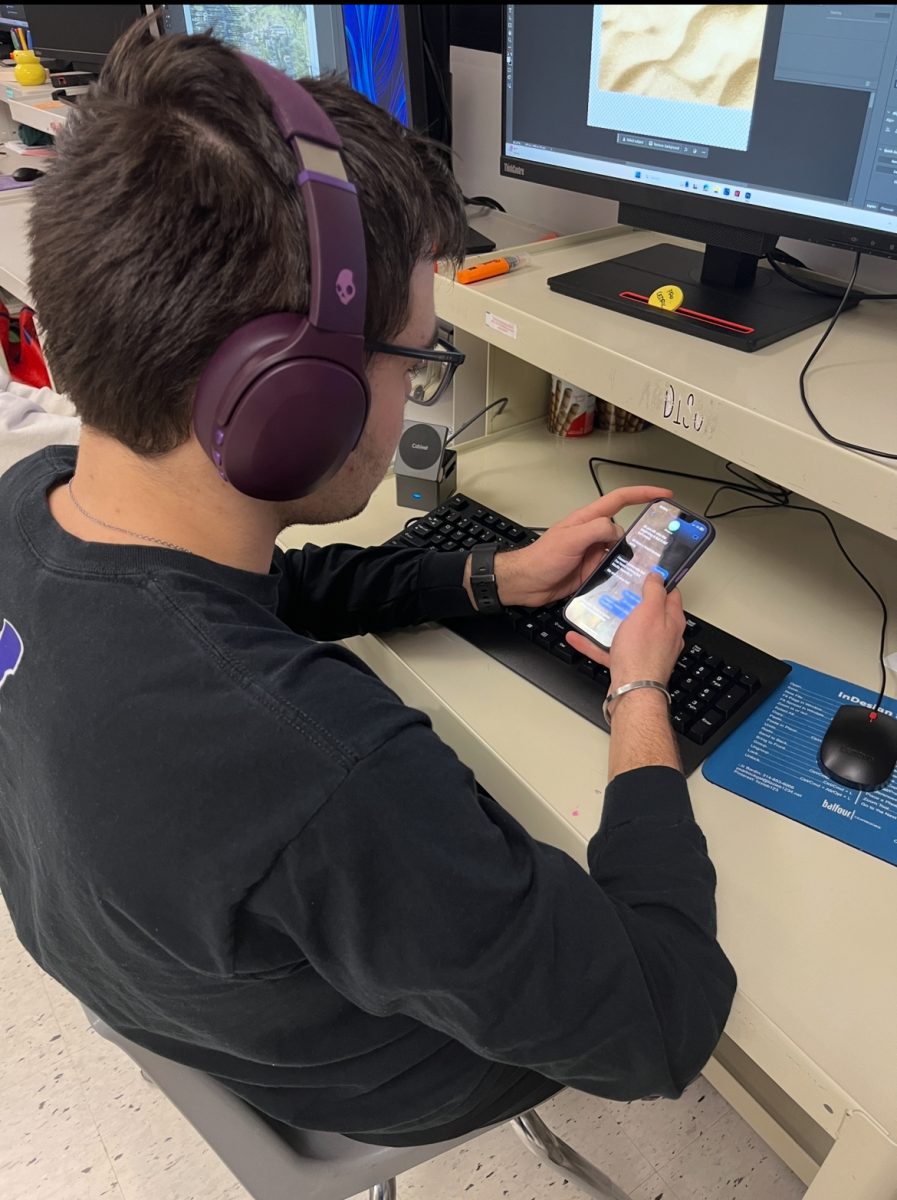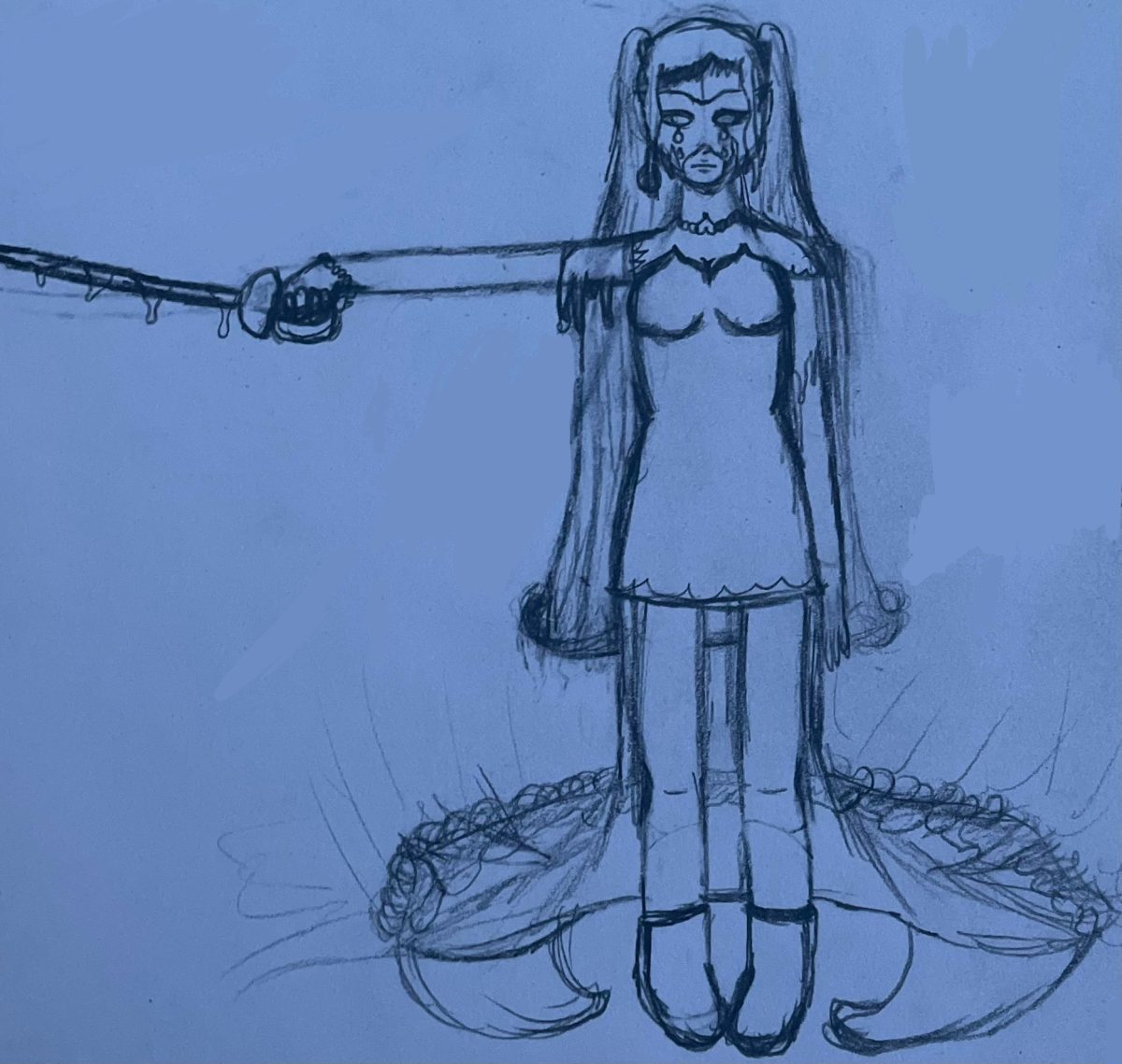While watching television or movies, playing video games or reading books, people may find characters that they like or identify with. Whether it be the devilishly charming villain, the do-good protagonist or an attractive side role, the general populace tends to connect to media they enjoy. It is normal to feel pulled towards a relatable individual, especially if it is a person who has similar experiences to another. Regardless of why someone feels this way, it is completely okay to like fictional characters.
“It’s not hurting anybody, and it’s just their personal opinion on what they like,” junior Kaylyn Shepardson said. “People shouldn’t get upset over it.”
When it comes to stories, whether they are in visual form or written form, they are designed for the community to form bonds with the narrative and the people within. A well-written tale will allow individuals to build emotional attachments with the various personalities in the piece of work, thus it does not make sense for a community to be judged for doing so. The people in these works are intended to be enjoyed by those who consume the media. These characters are made to be humanized and relatable so the audience will care about those roles.
“Your favorite characters are more real to you,” Ohio State University professor Dylan Wagner said, according to news.osu.edu.
In real life, people feel drawn to others that share their experiences. For example, if you have a friend who had a terrible day, and you also had a terrible day, then you may find yourself feeling more comfortable with that individual. In general, when someone detects similarities between themself and another person, they will be more likely to feel a connection. This leads us to further believe that the other is akin to us, even if we do not really know the person. So finding a character in media that you relate to can cause you to be interested in said character, according to psychologytoday.com.
“I find that we tend to believe that people’s identity is defined by some set of deeply rooted and unchanging qualities (an essence, or a true self), and this way of thinking is self-essentialism,” Boston University professor Charles Chu said. “When they see someone else who is similar to them, even if it’s only on a single dimension of similarity (e.g., when we like the same sports team), they then assume that this person has the same essence as them, which leads them to assume further that they share all the other qualities that are caused by their essence (e.g., we feel the same way about politics), even if they don’t have any evidence that that’s the case.”
Some of society argue that fondness for a fictional characters can lead to delusional beliefs or parasocial relationships—a relationship in which one individual spends a large amount of their time investing in another person, while the other is entirely unaware of the first. While this is possible, it is important to be aware that this only occurs when someone becomes unhealthily obsessed with a particular persona. When this happens, it is usually because the person is struggling to form positive relationships with people in the real world, so they turn to stories in order to make friends and other kinds of relationships. Oftentimes, this obsession is short-lived, and the individual will bond with others over a mutual liking for a character.
“They’ll get over it after their hyperfixation on it ends, or when the show is done,” Shepardson said.
Overall, liking fictional characters is acceptable and should be normalized. Finding someone who is similar to us or someone that has been through the same things as us is something that happens constantly in our lives. It may be easier for people to recognize themselves in a fictional person; an imagined person will have whatever opinions or reactions wanted of them. Bonding with someone that is not real is just another way of expressing yourself.

































